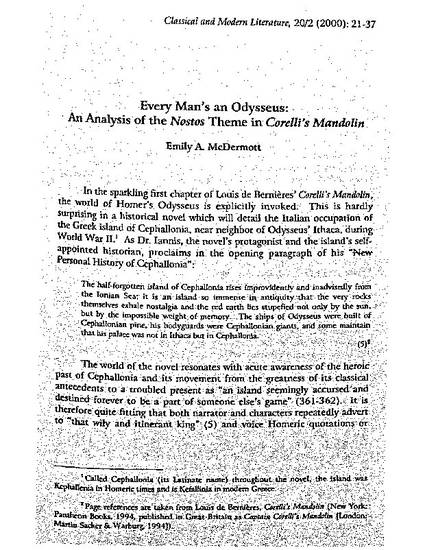
In the sparkling first chapter of Louis de Bernieres's Corelli's Mandolin, the world of Homer's Odysseus is explicitly invoked. This is hardly surprising in a historical novel which will detail the Italian occupation of the Greek island of Cephallonia, near neighbor of Odysseus's Ithaca, during World War II. What is less immediately apparent is that the novel contains a further pattern of inexplicit allusion to the Odyssey, along with a pervasive theme of nostos. Emphasis on "homecoming" helps create the novel's ardent encomium to the Greek homeland that inspires such fierce love of place in its people and promises them peace and regeneration. In an elaborate scheme of conversation between the ancient work and the modern one, three major male characters in the novel are serially cast in roles as an Odysseus and measured against that great epic hero, as their times are measured against the heroic past.
